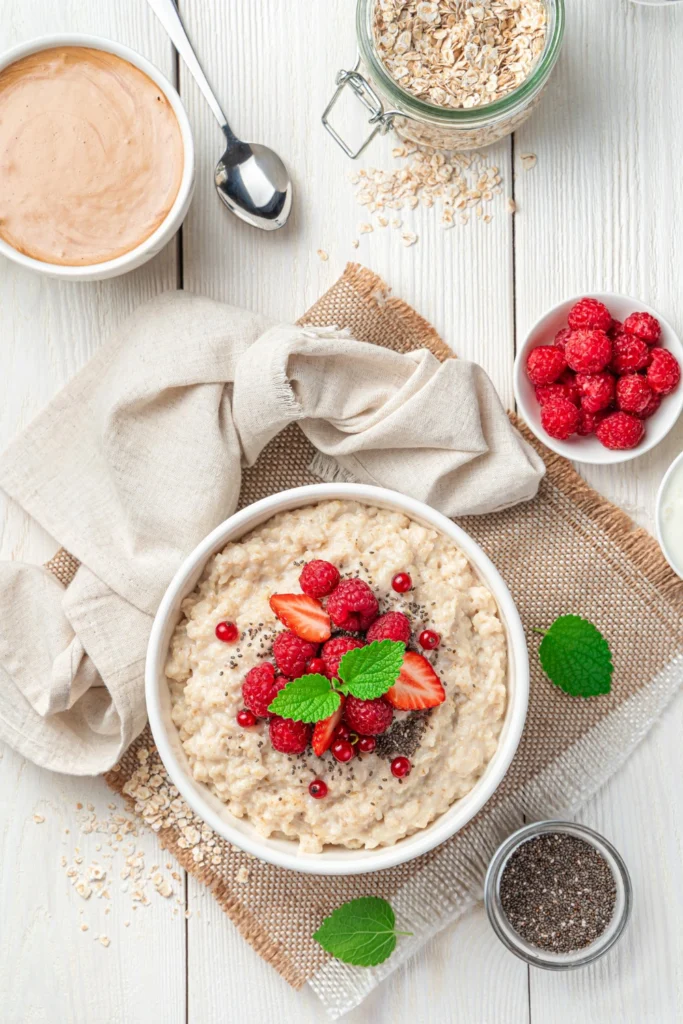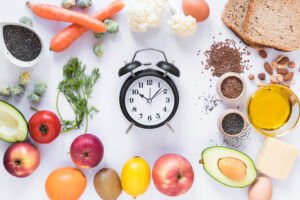Not only delicious, but also healthy: porridges that strengthen health and fill you with energy

Porridge is the basis of a healthy diet in many cultures around the world. Easy to prepare and rich in nutrients, it occupies an honorable place in the diet of those who care about their health. These dishes not only satisfy hunger, but also enrich the body with protein, fiber, vitamins, minerals, and complex carbohydrates, which provide a long-lasting feeling of fullness and energy. Porridge is especially beneficial for breakfast — it helps kick-start the metabolism and promotes an active start to the day. However, their value is not limited to morning meals: porridge is also suitable for lunch, dinner, and even desserts.
Different countries have their own traditions when it comes to porridge. In Scandinavia, they prefer oatmeal with berries, in Eastern Europe — buckwheat, in Latin America — quinoa, and more and more people are discovering amaranth. This variety shows that porridge is versatile and easily adapts to any taste and culinary culture.
Oatmeal: stability, nutrition, and heart support
Oatmeal is the undisputed leader among healthy breakfast foods. It is valued for its high soluble fiber content, which helps lower “bad” cholesterol and keeps you feeling full longer. Thanks to its low glycemic index, oats maintain stable blood sugar levels, making them an excellent choice for people with diabetes and those watching their weight.
Oats contain magnesium, iron, B vitamins, and beta-glucan, a powerful natural ingredient that helps strengthen the immune system. It also has a positive effect on the nervous system and metabolism, and when combined with fruits, nuts, or honey, it becomes a delicious and nutritious meal.
Buckwheat: protein, iron, and antioxidant power
Buckwheat porridge is an indispensable source of plant protein, containing all essential amino acids. It is especially useful for physically active people, helping to restore muscles and maintain tone. In addition, buckwheat is gluten-free and easy to digest.
Rich in antioxidants such as rutin and quercetin, buckwheat helps strengthen blood vessels and protect cells from damage. Its high iron content makes it an important part of the diet for people with anemia. It goes well with vegetables, meat, mushrooms, or served as a stand-alone dish, while remaining delicious and nutritious.
Quinoa: versatility, complete protein, and ease of preparation
Quinoa is a real find for those who strive for a balanced diet. This gluten-free pseudo-cereal contains a complete set of amino acids, making it a valuable source of protein, especially for vegetarians and vegans.
Quinoa is rich in magnesium, iron, potassium, B vitamins, and has a low glycemic index. Thanks to its mild nutty flavor and versatility, it is suitable for both sweet breakfasts and hearty lunches. The main thing is to rinse it before cooking to remove the bitterness of the saponins. Quinoa goes well with herbs, vegetables, nuts, fruits, and spices.
Amaranth: an ancient grain with modern potential
Amaranth has been known since Aztec times and is considered one of the most nutritious grains. It contains lysine, an amino acid that is difficult to find in other plant products. Thanks to its high fiber and protein content, amaranth aids digestion, satisfies hunger, and helps maintain energy levels.
This grain is gluten-free and rich in iron, calcium, magnesium, and squalene, a powerful antioxidant. Amaranth can be used in porridge, flour, or even as an additive in baked goods. It gives dishes a creamy texture and is great for baby food.
Why you should eat porridge every day
Regular consumption of porridge improves digestion, stabilizes blood sugar levels, and supports heart and nervous system health. Porridge is filling without overloading the body and helps control weight. Whole grain varieties are especially beneficial as they retain maximum vitamins and minerals.
Porridge is easy to experiment with: add fruit, spices, and seeds to vary the taste and increase the benefits. It is an affordable and practical way to make your diet more balanced and healthy without sacrificing pleasure.
Conclusion: porridge is self-care
Oats, buckwheat, quinoa, and amaranth are not just healthy foods, they are true allies of good health. Each of them supports the body in its own way, but all of them deserve a permanent place in your diet. Let porridge become not a chore, but a habit that gives you energy, health, and enjoyment from food. Because taking care of yourself starts with simple but wise decisions.




